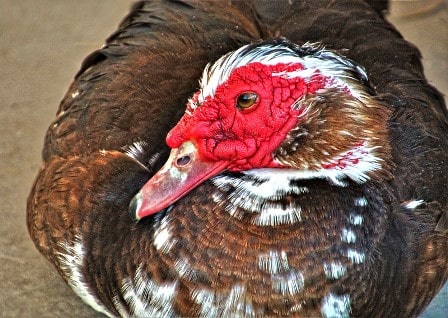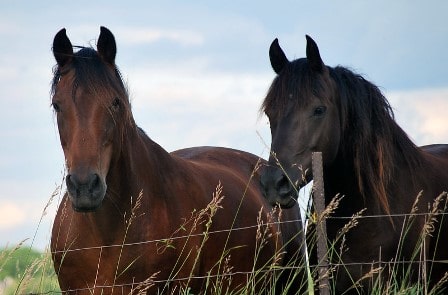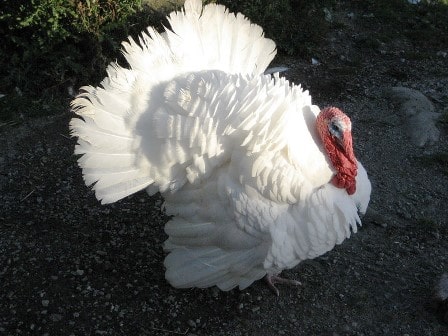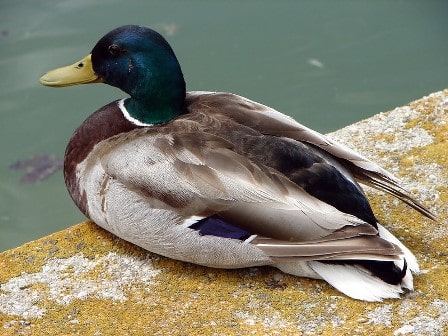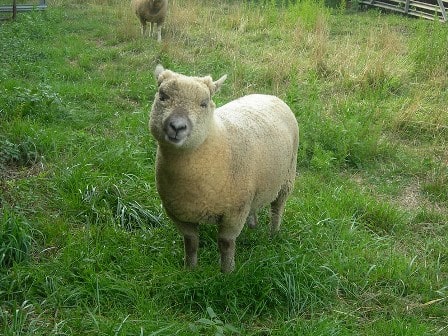1. Mule
Definition and characteristics of a mule
A mule is a hybrid breed resulting from the crossbreeding of a male donkey (also known as a jack) and a female horse (also known as a mare). Mules are known for their unique characteristics, including:
- Physical Appearance: Mules typically inherit physical traits from both their donkey and horse parents. They have long ears, a short mane, and a sturdy body structure.
- Size: Mules are typically larger and more robust than donkeys, but smaller and more agile than horses.
- Strength: Mules are known for their exceptional strength and endurance, making them suitable for working on farms.
Uses of mules on farms
Mules have been vital to farm operations for centuries due to their various uses, including:
- Work Animals: Mules are often used for agricultural purposes, such as plowing fields, pulling heavy loads, and transporting goods. They possess the strength and stamina required for these demanding tasks.
- Pack Animals: Mules excel as pack animals, carrying supplies and equipment over rough terrains. Their surefootedness and ability to navigate challenging trails make them valuable assets on farms.
- Draft Animals: Mules are well-suited for draft work, meaning they can pull heavy loads or equipment. Their strength and pulling power make them efficient in tasks like hauling logs or towing wagons.
- Mounts for Riding: Mules can also be trained for riding purposes, providing a comfortable and reliable mode of transportation around the farm.
Overall, mules are versatile farm animals that combine the best traits of donkeys and horses. Their strength, endurance, and adaptability make them indispensable for various agricultural tasks.
2. Mare
Definition and characteristics of a mare
A mare is a female horse that is typically over four years old. Mares are known for their strength, grace, and intelligence. They can vary in size, color, and temperament, but are generally known for their nurturing nature. Mares have a gestation period of around 11 months and give birth to foals.
Common breeds of mares on farms
There are numerous breeds of mares that are commonly found on farms. Some of the popular breeds include:
- Thoroughbred Mare: Thoroughbred mares are known for their speed and athleticism. They are commonly used in horse racing and have a sleek and elegant appearance.
- Quarter Horse Mare: Quarter horse mares are versatile and known for their athleticism and calm temperament. They are often used in Western riding disciplines such as reining and barrel racing.
- Arabian Mare: Arabian mares are one of the oldest and most influential horse breeds. They are known for their endurance and distinctive head shape.
- Appaloosa Mare: Appaloosa mares are easily recognized by their spotted coat patterns. They are versatile and excel in various disciplines such as pleasure riding and trail riding.
- Paint Horse Mare: Paint horse mares have distinctive coat patterns with large patches of white and another color. They are known for their versatility and are commonly found in both Western and English riding disciplines.
Mares play an essential role in farming and equestrian activities, contributing to various tasks such as riding, breeding, and assisting in farm work.
3. Milking Goat
Definition and characteristics of a milking goat
A milking goat, as the name suggests, is a type of goat that is specifically bred and raised for milk production. These goats are known for their ability to produce a substantial amount of high-quality milk, which can be used for various purposes. Some key characteristics of milking goats include:
- High milk production: Milking goats are bred to produce a significant amount of milk. Some breeds, such as the Saanen and Nubian goats, are known for their exceptional milk production.
- Adaptability: Milking goats are known for their ability to adapt to a variety of climates and environments. They can thrive in both hot and cold climates.
- Docile temperament: Milking goats generally have a gentle and calm temperament, which makes them easier to handle and milk.
Benefits of raising milking goats on farms
Raising milking goats on farms offers several benefits, both for farmers and consumers. Some of the key benefits include:
- Fresh and nutritious milk: Milking goats produce milk that is rich in vitamins, minerals, and proteins. The milk is considered to be healthier and more easily digestible compared to cow’s milk.
- Sustainable farming: Goats require less space and resources compared to cows, making them a more sustainable farming option. They can graze on smaller plots of land and require less water and feed.
- Income generation: Milking goats can serve as a source of additional income for farmers. The milk can be sold directly to consumers or used to make dairy products such as cheese, yogurt, and butter.
- Eco-friendly: Goats have a smaller carbon footprint compared to cows. They produce less methane gas and require less land and water, making them an eco-friendly farming choice.
Raising milking goats on farms provides a sustainable and profitable farming option while also offering consumers access to fresh and nutritious milk.
4. Muscovy Duck
Definition and characteristics of a Muscovy duck
The Muscovy duck (Cairina moschata) is a domesticated breed of duck that is commonly found on farms. It is known for its unique appearance and characteristics, which include:
- Size: Muscovy ducks are larger than most other domestic ducks, with males weighing around 10-15 pounds and females weighing around 6-7 pounds.
- Plumage: Their feathers come in various colors, including black, white, and a combination of black and white. They have a patch of red or pink skin around their eyes, which makes them easily recognizable.
- Feet and claws: Unlike other ducks, Muscovy ducks have strong claws on their feet, which allow them to perch on trees and other elevated surfaces.
- Behavior: Muscovy ducks are known for their calm and friendly nature. They are relatively quiet compared to other ducks and have a unique hissing sound instead of quacking.
- Reproduction: Muscovy ducks are excellent breeders and have large clutches of eggs. They are also known for their brooding behavior, as females are dedicated mothers and will protect their ducklings fiercely.
Advantages of keeping Muscovy ducks on farms
There are several advantages to keeping Muscovy ducks on farms:
- Pest control: Muscovy ducks are great at controlling pests such as insects, snails, and slugs. They can help reduce the need for chemical pesticides on the farm.
- Egg production: Muscovy ducks are productive egg layers, with females laying between 60-120 eggs per year. Their eggs are larger than those of chickens and have a rich, flavorful taste.
- Meat production: Muscovy ducks are often raised for their meat, which is known for being lean and flavorful. The meat is considered a delicacy in many cuisines and is in high demand.
- Foraging ability: Muscovy ducks are excellent foragers and can find their own food by grazing on grass, weeds, and insects. This makes them cost-effective to raise since they require less feed.
- Disease resistance: Muscovy ducks are known for their natural resistance to diseases that commonly affect other domestic ducks. This makes them a hardy and low-maintenance option for farmers.
Overall, Muscovy ducks are a unique and beneficial addition to any farm. Their size, appearance, and characteristics make them an interesting choice for those looking to raise ducks for both eggs and meat.
5. Merino Sheep
Definition and characteristics of a Merino sheep
Merino sheep are a breed of domestic sheep known for their fine wool. They are most commonly found in Australia, New Zealand, and South Africa, but they are also raised in other parts of the world. Merino sheep have several distinctive characteristics:
- Fine wool: Merino wool is highly valued for its softness and fineness. The wool fibers are incredibly fine, making it ideal for high-quality textiles.
- Wrinkled skin: Merino sheep have wrinkled skin, which allows them to produce more wool per unit of skin area.
- Good adaptability: Merino sheep are adaptable and can thrive in a range of climates, from hot summers to cold winters.
- Grazing habits: Merino sheep are known for their grazing habits. They prefer eating short grass and are highly efficient at utilizing pasture.
Uses of Merino sheep on farms
Merino sheep are primarily raised for their wool, which has several uses on farms:
- Wool production: Merino wool is highly sought after for its quality and versatility. It is used in the production of clothing, blankets, carpets, and other textiles.
- Crossbreeding: Merino sheep are often used for crossbreeding to improve the wool quality of other breeds.
- Meat production: While Merino sheep are not typically raised for meat production, their meat can be consumed. However, the meat tends to be leaner and less tender compared to meat breeds.
- Land management: Merino sheep can be used for grazing to manage and maintain pastures. Their grazing habits help control weed growth and promote healthy pastureland.
Merino sheep are valuable assets on farms due to their wool production and adaptability to different environments.
6. Midget White Turkey
Definition and characteristics of a Midget White turkey
The Midget White turkey is a small-sized breed of domestic turkey that originated in the United States. It is known for its unique appearance and characteristics:
- Size: Midget White turkeys are smaller in size compared to other turkey breeds, making them ideal for smaller farms or backyard settings.
- Color: They have pure white feathers, which give them a distinctive and attractive appearance.
- Weight: On average, adult Midget White turkeys weigh between 9 and 15 pounds.
- Meat quality: They are highly prized for their flavorful and tender meat, making them a popular choice among turkey enthusiasts.
Reasons to raise Midget White turkeys on farms
There are several reasons why farmers choose to raise Midget White turkeys:
- Size and Space: Due to their compact size, Midget White turkeys require less space to roam and can be raised in smaller enclosures, making them a practical choice for small farms or urban settings.
- Meat Production: They are known for their excellent meat quality, with a delicate flavor and tender texture. As a result, they are often raised for their meat production.
- Versatility: Midget White turkeys can adapt well to various environments and climates. They are also known to be hardy and disease-resistant, making them easier to raise compared to larger turkey breeds.
- Unique Heritage: This breed has a unique history and is considered an American heritage breed, making it a valuable addition to any farm or breeding program.
Overall, Midget White turkeys are an excellent choice for farmers looking for a smaller-sized turkey breed with great meat quality and adaptability.
7. Miniature Donkey
Definition and characteristics of a miniature donkey
The miniature donkey is a smaller breed of donkey that is bred specifically for its small size. These adorable creatures typically stand at about 36-38 inches tall at the withers and weigh between 200-350 pounds. They have a sweet and gentle temperament, making them popular as companion animals on farms. Miniature donkeys are known for their long ears and unique markings, which can vary from solid colors to spotted or striped patterns.
Benefits of owning miniature donkeys on farms
• Companionship: Miniature donkeys are social animals that enjoy the company of humans and other animals. They can provide companionship to other farm animals and even help reduce stress in your herd or flock.
• Weed control: Miniature donkeys are natural grazers and can help control weeds and brush on your farm. They have a preference for eating grass and can help keep your pastures well-maintained.
• Guard animals: Miniature donkeys are known for their protective nature and can serve as excellent guard animals for your livestock. Their braying can deter predators and alert you to any potential threats.
• Education and therapy: Miniature donkeys are often used in educational programs and therapy sessions due to their friendly and gentle nature. They can help teach children about animal care and provide emotional support to individuals with special needs.
Overall, owning miniature donkeys on your farm can provide numerous benefits, from companionship and weed control to serving as guard animals and supporting educational and therapy programs. They are charming creatures that can bring joy and productivity to your farm environment.
8. Mallard Duck
Definition and characteristics of a Mallard duck
The Mallard duck is a common species of wild duck that is also found on farms. Known for their vibrant plumage, Mallard ducks have green heads, white neck rings, and brown bodies. The males, called drakes, are more colorful than the females, called hens. Mallard ducks are medium-sized, with a length of around 20 inches and a wingspan of approximately 36 inches. They have webbed feet that are adapted for swimming and a bill that is flat and broad.
Role of Mallard ducks on farms
On farms, Mallard ducks serve several purposes, including:
- Pest Control: Mallard ducks are natural pest controllers. They feed on insects, snails, slugs, and other pests that can damage crops. Having a population of Mallard ducks on a farm can help reduce the need for chemical pesticides.
- Egg Production: Mallard ducks are also bred for egg production. Their eggs are larger than chicken eggs and are rich in nutrients. They are used in cooking and baking, and their high protein content makes them a popular choice for health-conscious consumers.
- Ornamental Purposes: Mallard ducks are known for their beauty, and their presence on a farm can add to its aesthetic appeal. They are often kept for ornamental purposes and can be a delightful sight for visitors.
- Research and Education: Mallard ducks are widely studied in the field of behavioral and evolutionary biology. Their behavior, reproduction, and habitat preferences are important areas of research. They are often used as model organisms in scientific studies.
These are just a few of the roles that Mallard ducks play on farms. Their versatility and adaptability make them valuable assets to agricultural systems.
9. Mangalica Pig
Definition and characteristics of a Mangalica pig
The Mangalica pig is a rare breed of domestic pig that originated in Hungary. It is known for its unique woolly coat, which resembles that of a sheep. This breed was first developed in the 19th century and is renowned for its high-quality meat.
Features that make Mangalica pigs suitable for farms
Mangalica pigs have several features that make them suitable for farm environments:
1. Adaptability: Mangalica pigs are highly adaptable to various climates and can withstand both cold and hot temperatures.
2. Disease resistance: These pigs have a natural resistance to certain diseases, making them relatively low-maintenance compared to other pig breeds.
3. Fertility: Mangalica pigs have excellent reproductive abilities, with females typically producing large litters.
4. High-quality meat: The meat of Mangalica pigs is highly sought after for its tenderness, marbling, and rich flavor. It is often compared to high-quality beef or cured ham.
5. Grazing capabilities: Mangalica pigs have good grazing capabilities and can forage for food, making them well-suited for free-range farming systems.
These characteristics make Mangalica pigs a valuable asset for farmers looking to raise high-quality pork while maintaining a sustainable and efficient farm operation.
10. Montadale Sheep
Definition and characteristics of a Montadale sheep
Montadale sheep are a breed of domestic sheep that originated in the United States. They were developed by crossing Columbia and Cheviot sheep, resulting in a breed known for its meat-producing capabilities and versatility. Some key characteristics of Montadale sheep include:
- Medium to large size: Montadale sheep are medium to large in size, with rams weighing around 250 to 300 pounds and ewes weighing around 175 to 225 pounds.
- White, dense wool: Montadale sheep have dense, fine-wool fleece that is highly prized in the textile industry.
- Fast growth rate: They have a fast growth rate, making them ideal for meat production.
- Good mothering instincts: Montadale ewes have excellent mothering instincts, making them attentive and protective mothers.
- Easy to handle: Montadale sheep are generally docile and easy to handle, making them suitable for both commercial and small-scale farms.
Uses and advantages of raising Montadale sheep on farms
Raising Montadale sheep on farms offers several advantages and opportunities:
- Meat production: Montadale sheep are primarily raised for meat production. They have a high meat-to-bone ratio, making them an excellent choice for farmers looking to produce high-quality lamb meat.
- Wool production: In addition to meat production, Montadale sheep also provide a valuable source of wool. Their dense, fine-wool fleece can be used for various textile applications.
- Adaptability: Montadale sheep are adaptable to various climates and environments, making them suitable for a wide range of farming conditions.
- Low maintenance: Montadale sheep are known for their hardiness and easy-care nature. They require minimal maintenance and can thrive on grazing alone.
- Crossbreeding potential: Montadale sheep can be used in crossbreeding programs to enhance meat production and improve desirable traits in other sheep breeds.
Overall, Montadale sheep are a versatile and valuable addition to farms, providing opportunities for both meat and wool production. Their favorable characteristics, adaptability, and low maintenance make them an excellent choice for farmers looking to maximize productivity and profitability.
MORE POSTS:
7 Farm Animals that Start with J
11 Zoo Animals that Start with N
10 Zoo Animals that Start with X
Ankurman Handique
Latest posts by Ankurman Handique (see all)
- How to Reach Kaziranga National Park: A Complete Guide - June 29, 2024
- What animals are found in Puerto Rico? - February 23, 2024
- What does coyote poop look like? - February 20, 2024

